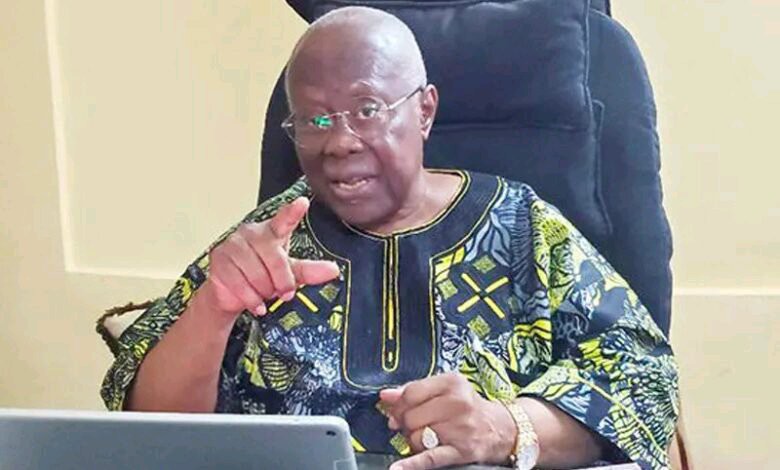In a recent interview on Channels TV FROM 51:43, Chief Bode George, a prominent figure in the Peoples Democratic Party (PDP), addressed the ongoing political tensions in Rivers State, calling for de-escalation and a return to dialogue. The PDP chieftain expressed his concerns about the current situation and emphasized the need for a peaceful resolution.
Chief George revealed that the party’s Board of Trustees has become involved in mediating the crisis. He stated, “That is why the Board of Trustees has gotten themselves involved in resolving this crisis.” This intervention highlights the party’s commitment to finding a diplomatic solution to the conflict.
Referring to the relationship between the key figures involved, George reminded viewers of their long-standing association. He noted, “They have been friends since Wike was a Local Government Chairman.” This statement underscores the depth of the relationship between the parties and suggests that their shared history could be a foundation for reconciliation.
Questioning the intensity of the conflict, George asked, “Why is it like a do or die thing?” This rhetorical question challenges the confrontational approach that has characterized the recent political climate in Rivers State.
The PDP chieftain also emphasized the fundamental responsibilities of governance, stating, “The first responsibility of any government in the world is to protect the life and properties of his people.” This reminder serves to refocus attention on the primary duties of elected officials, suggesting that personal conflicts should not overshadow public service.
In a direct appeal to one of the key figures in the dispute, George urged, “He (Wike) should please stop.” This plea for restraint indicates the PDP leader’s desire to see an immediate cessation of hostilities.
Chief George’s comments reflect a broader concern within the party about the escalating situation in Rivers State. By highlighting the long-standing relationships between the involved parties and emphasizing the importance of dialogue, he advocates for a more measured approach to resolving political differences. The interview serves as a call to prioritize the welfare of citizens over personal or political ambitions, encouraging a return to constructive engagement for the benefit of Rivers State and its people.

